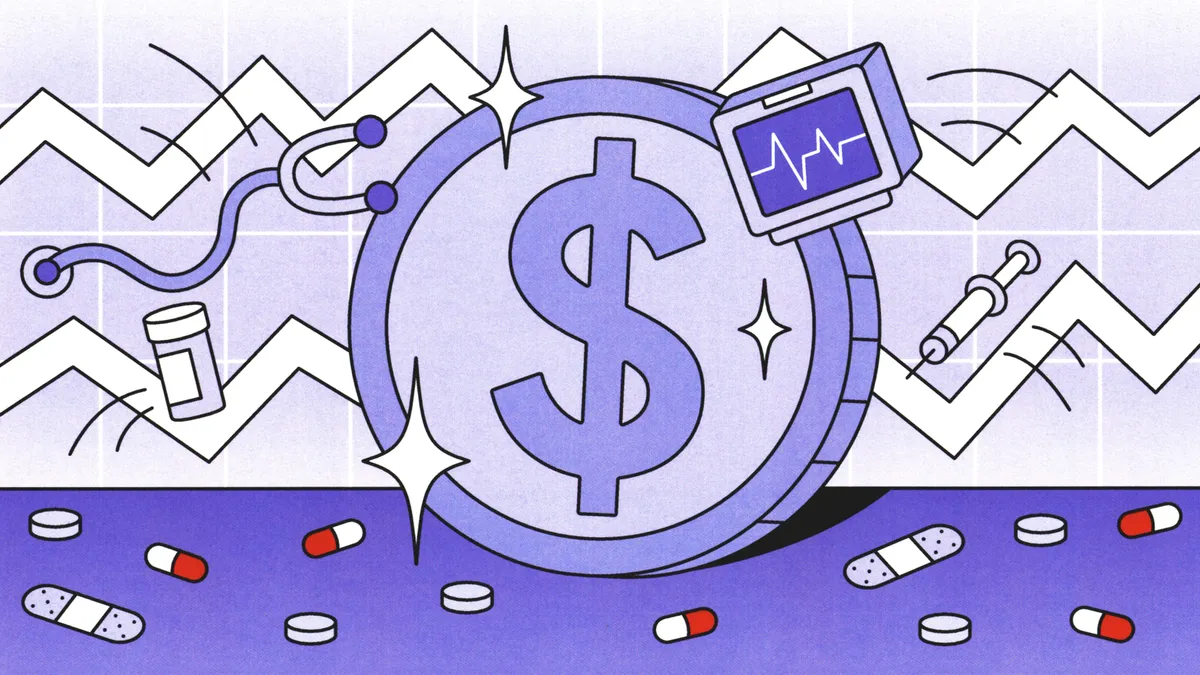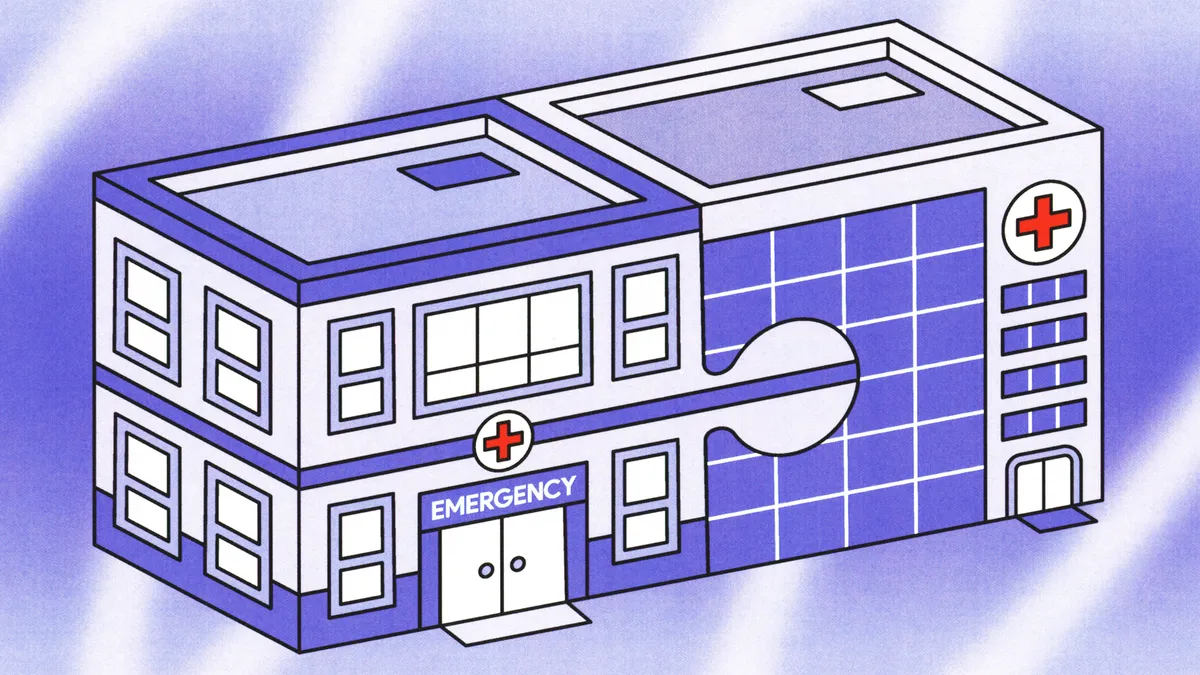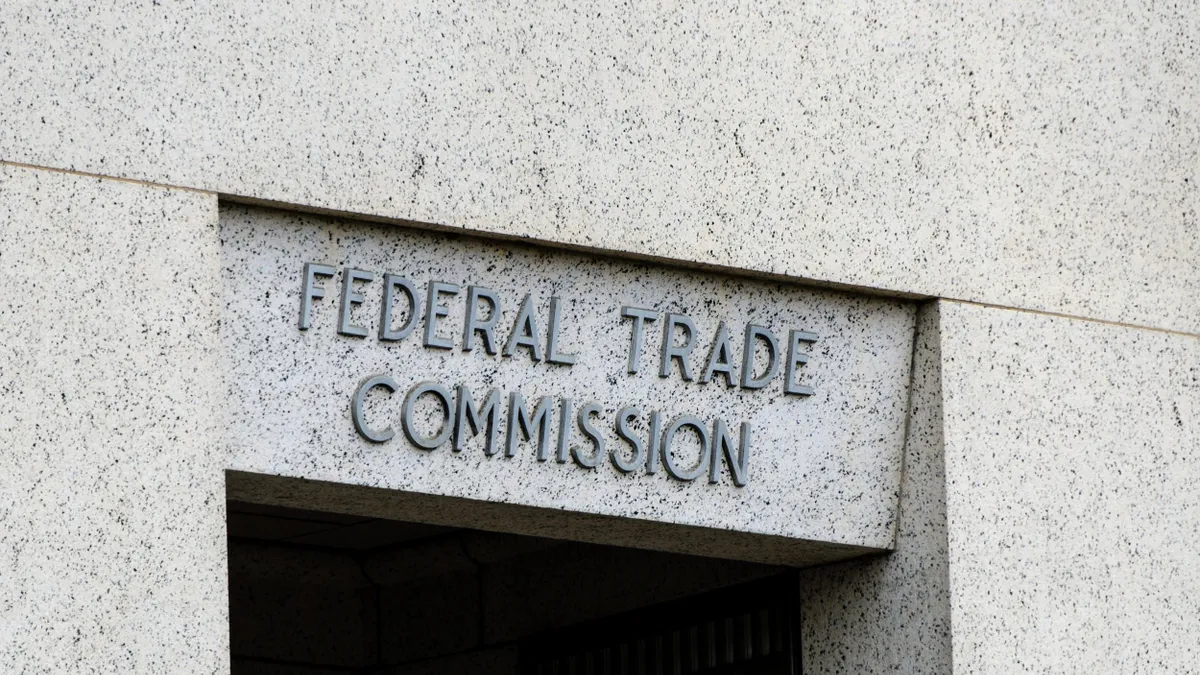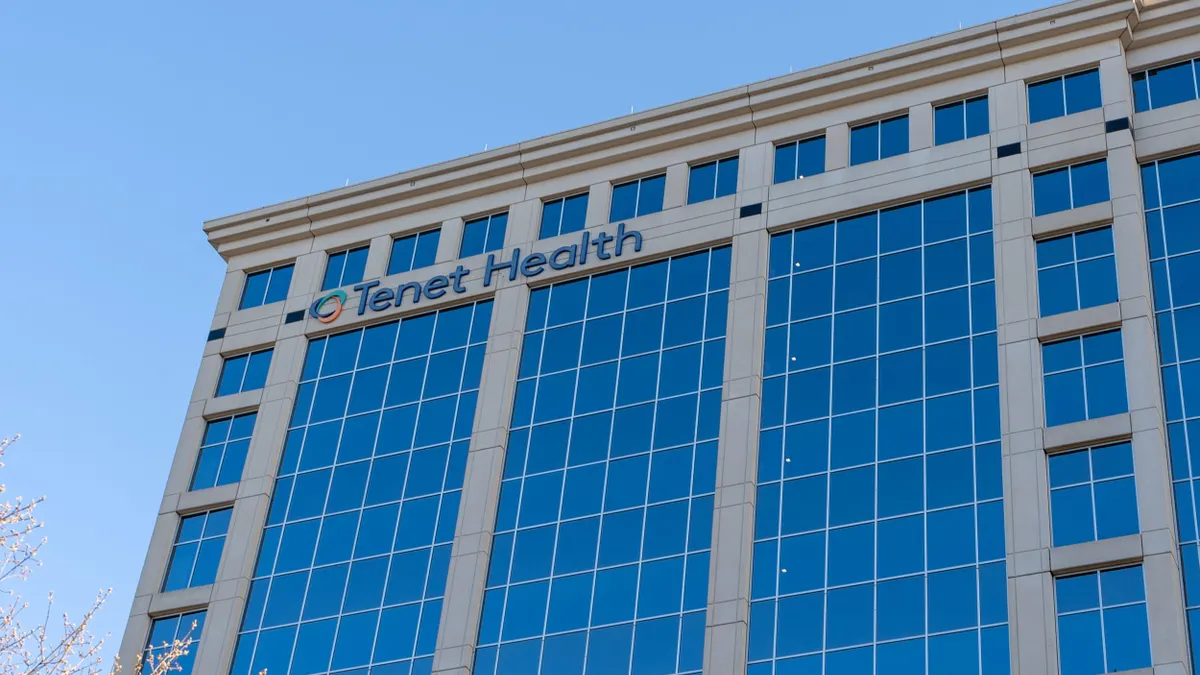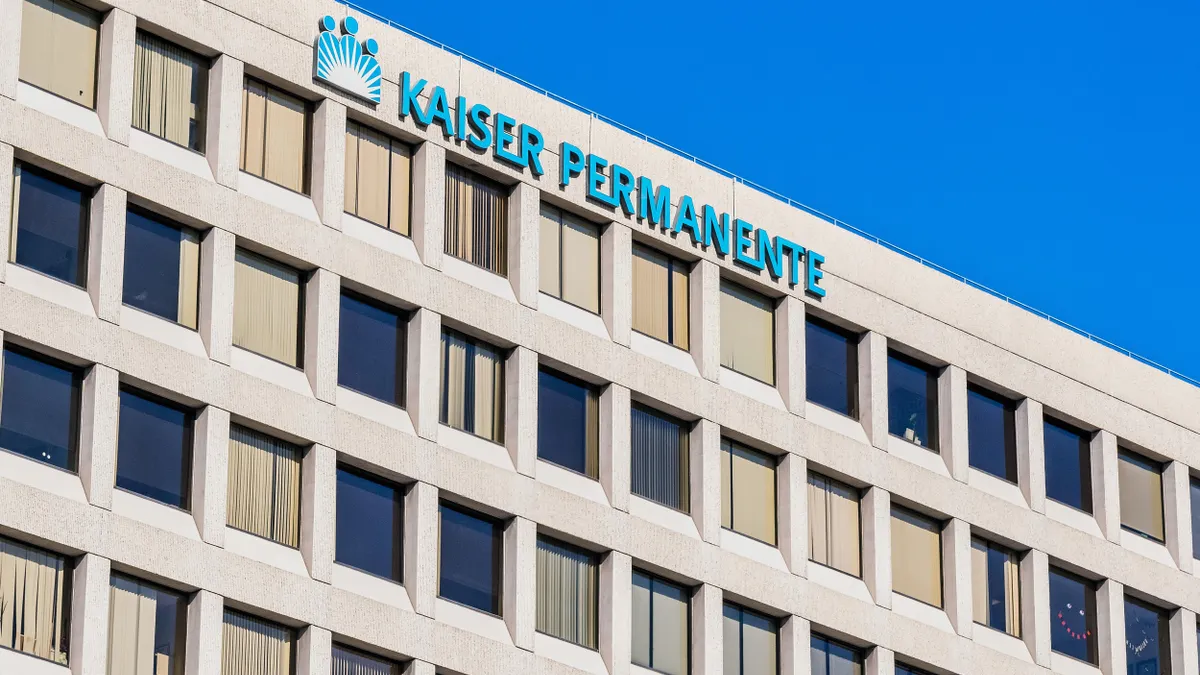Major for-profit hospital chains reported lower-than-expected volumes in second quarter earnings results, causing some to cut back on volume and earnings expectations for the year.
Executives at the for-profit hospital chains — HCA Healthcare, Tenet Healthcare, Community Health Systems and Universal Health Services — attributed the volumes to different factors, from lower Medicaid admissions to a decline in consumer confidence, which impacted spending on healthcare services.
Softer volumes caused HCA, Tenet and CHS to lower their full-year outlooks for admissions. UHS did not report expectations for volume growth.
The for-profits also gave updates on the future financial impacts of President Donald Trump’s One Big Beautiful Bill Act. The megabill, signed into law last month, includes $1 trillion in cuts to healthcare services over a decade, including programs like Medicaid state-directed payments and provider taxes.
The impacts, coupled with a potential loss of Affordable Care Act subsidies, could be big for hospitals. Some executives projected hundreds of millions of dollars of losses, with impacts starting to phase in during 2027.
Hospital executives said they’re still lobbying congressmen for changes.
“In talking with all the folks down in D.C., representatives from many of the states that we cover, they are starting to recognize what they passed simply can’t be left as is because of the effect on some of the healthcare programs in their state,” UHS CEO Marc Miller said on a recent earnings call.
Lower-than-expected admissions
Although softer volumes plagued all major for-profit providers in the second quarter, executives gave conflicting answers as to why.
Executives at Franklin, Tennessee-based CHS blamed declining admissions on widespread consumer uncertainty, affecting how people spend their money. In the second quarter, CHS’ same-store adjusted admissions declined 0.7% year over year. A 7.4% decrease in consolidated admissions and a 8.3% decrease in adjusted admissions caused the operator to lower its 2025 guidance for pre-tax earnings excluding expenses.
It now expects between $1.45 billion to $1.55 billion in adjusted earnings before interest, tax, depreciation and amortization for 2025, when it previously expected $1.6 billion in its upper-end.
“The consumer confidence consistently declined in April, May and June to the point where we’re seeing now, the lowest consumer confidence probably since COVID levels,” Kevin Hammons, CHS’ CFO, said on a July call with investors.
HCA CEO Sam Hazen said consumer confidence wasn’t the issue. Instead, Hazen said slower-than-expected Medicaid, Medicare and self-pay volume growth hampered the Nashville, Tennessee-based operator’s performance in the quarter.
Unlike other chains, volumes at HCA grew modestly in the second quarter. Equivalent admissions increased by 2.3% year over year. However, outpatient surgeries decreased 0.2%, continuing a trend from prior quarters.
Tenet said broad seasonal changes and its focus on lucrative, high-acuity service lines explained volume declines. The operator grew adjusted admissions in its hospital unit by 0.4%, but outpatient visits, emergency room visits and hospital surgeries all declined.
“I think this will play itself out over time,” Tenet CEO Saum Sutaria said on an earnings call.
Acute admissions grew 2% at UHS, which divides its portfolio into an acute hospital and behavioral health segment, and surgical volumes were “down slightly,” according to CFO Steve Filton. Adjusted admissions for its behavioral health unit increased 0.4%, essentially flat but an improvement from the first quarter when volumes declined.
Executives said UHS now does not expect to hit a previous growth metric of 2.5% to 3% growth for adjusted behavioral patient days this year, instead calling it a long-term target.
UHS executives said the lower volumes were due to numerous factors, including staffing challenges, a slow opening at one of its newer facilities.
Patients may be utilizing more outpatient behavioral health services, volumes UHS would miss with its inpatient-focused portfolio. Insurance companies have said patients are utilizing more medical care, particularly in behavioral health. UHS says that trend is mostly happening in outpatient services.
“We believe that a significant chunk of that increase is in outpatient, and we are determined to get a larger share of that, I’ll call it, ‘outpatient pie’ as we go forward,” Filton said on an earnings call.
Providers detail impacts from funding cuts, spur lobbying efforts
The for-profit operators also gave updates on the impacts from the Big Beautiful Bill, with the biggest financial impacts stemming from cuts to Medicaid state-directed payments and provider taxes. Providers also said they’re preparing for a lapse of ACA subsidies, not included in the law, but still slated to expire at the end of this year.
CHS executives said it expects a cumulative $300 million to $350 million reduction in EBITDA over the next 13 years from restrictions on provider taxes and state-directed payments, although the operator’s forecast doesn’t take into account an impact from Medicaid work requirements or ACA enrollment changes.
CFO Hammons said it expects the provisions to have no impact in 2025 or 2026, an immaterial impact in 2027 and then to build from there.
In addition, executives said CHS plans to support industry lobbying efforts against the law’s healthcare provisions.
“In the upcoming months, CHS will support industry efforts to aggressively pursue legislative and administrative fixes to the bill,” Hammons said. “We assume the opportunities to do so will increase as voters better understand how the cuts affect their households.”
UHS’ Miller called the current version of the law the “worst case scenario” for the operator, and said it would cost it between $360 million to $400 million by 2032 as it’s currently outlined.
Executives at Tenet declined to materially comment on the financial impacts from the law, even though the cuts could be significant. Tenet expects to record about $1.1 billion to $1.2 billion in supplemental payments in 2025. In the second quarter alone, the operator gained about $350 million in supplemental payments.
HCA CEO Hazen called the impacts from the bill “manageable,” because about 60% of HCA’s Medicaid volumes and revenue lie in hospitals in states that have not expanded Medicaid, which will be less impacted by the funding cuts.








